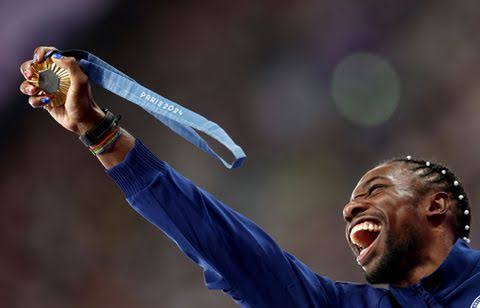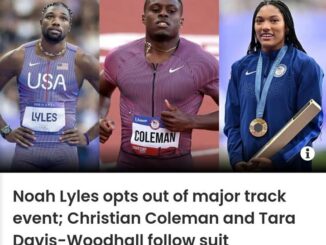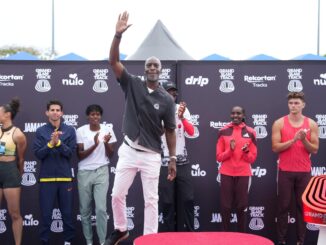
2028 Olympic Decision: Noah Lyles Opts Out of Olympic Village for 2028 Los Angeles Games After Paris Experience
Six-time world champion and Olympic medalist Noah Lyles has publicly announced that he will not stay in the Olympic Village during the 2028 Los Angeles Games, citing his recent experience at the 2024 Paris Olympics as the primary reason for his decision. The American sprinting star revealed that the environment of the Olympic Village, while rich in camaraderie and Olympic spirit, is not conducive to the focus and recovery required to perform at his best on the world’s biggest stage.
Lyles, who emerged as one of the most dominant figures in track and field in recent years, was candid in his remarks following his Paris campaign. While he celebrated success on the track, including multiple medals, he expressed frustration with the living conditions and constant buzz of the Village environment. “It’s not that I don’t value the Olympic experience,” Lyles explained. “But I’m here to win. And for me, that means I need to control every detail — my sleep, my recovery, my meals, my mental space.”
The Olympic Village, often celebrated for its melting pot of global cultures and athlete interaction, is also known for its crowded accommodations, rigid dining schedules, and logistical complexities. For elite athletes like Lyles, whose routines are meticulously optimized for peak performance, these factors can be disruptive. In Paris, Lyles reportedly dealt with sleep disturbances, long transport times, and a lack of privacy — all of which contributed to his decision to find alternative accommodations in 2028.
This isn’t the first time a top-tier athlete has chosen to stay outside the Village. Over the years, many Olympians — especially those from the United States — have opted for private housing or team-arranged hotels to avoid distractions and maintain control over their training environments. However, Lyles’ open stance has drawn renewed attention to the challenges elite athletes face during Olympic competition.
In Los Angeles, where he’ll be competing on home soil, Lyles believes he has more flexibility to create a tailored environment that supports his goals. “In LA, we have the ability to plan months in advance — to find a location that fits exactly what I need,” he said. “I love representing my country. But I’ve learned that part of doing that to the best of my ability means putting myself in the best position to succeed.”
Lyles’ decision reflects a growing trend among athletes who prioritize performance over tradition. While some may see it as distancing from the Olympic spirit, many others view it as a professional, strategic move in an era where margins between gold and silver are often razor-thin.
As 2028 approaches, it’s likely that more athletes — particularly those in high-profile, individual sports — will follow Lyles’ lead. His decision may also prompt conversations within the International Olympic Committee and organizing bodies about how to better accommodate the needs of elite athletes while maintaining the core community experience of the Games.
For now, Lyles is focused on continuing his reign as one of track and field’s premier stars — and doing so, on his own terms.



Be the first to comment